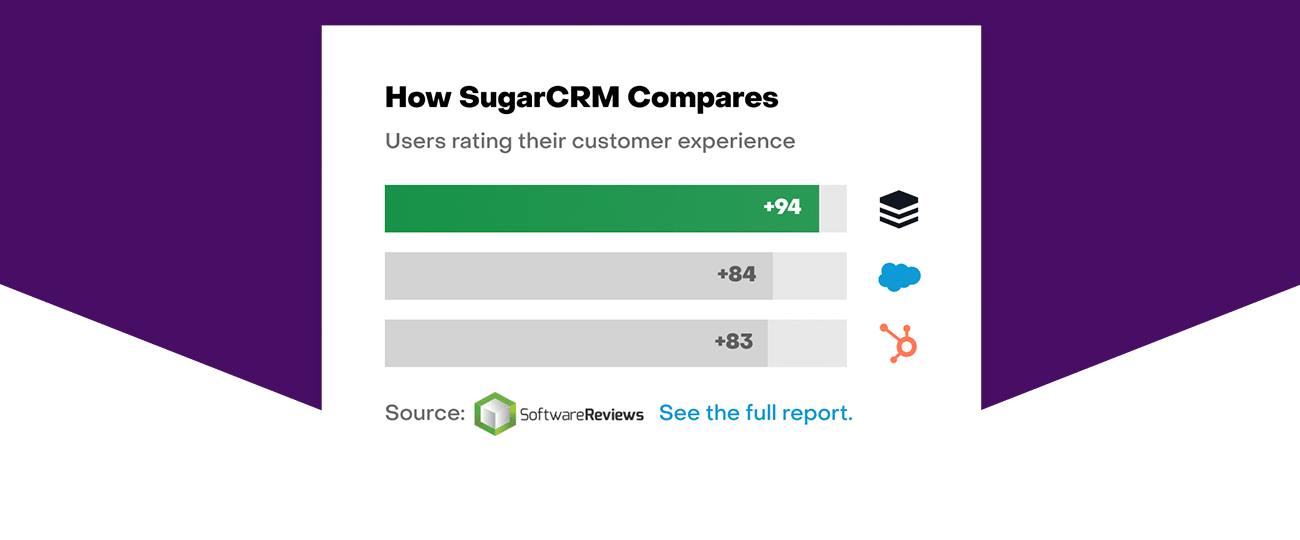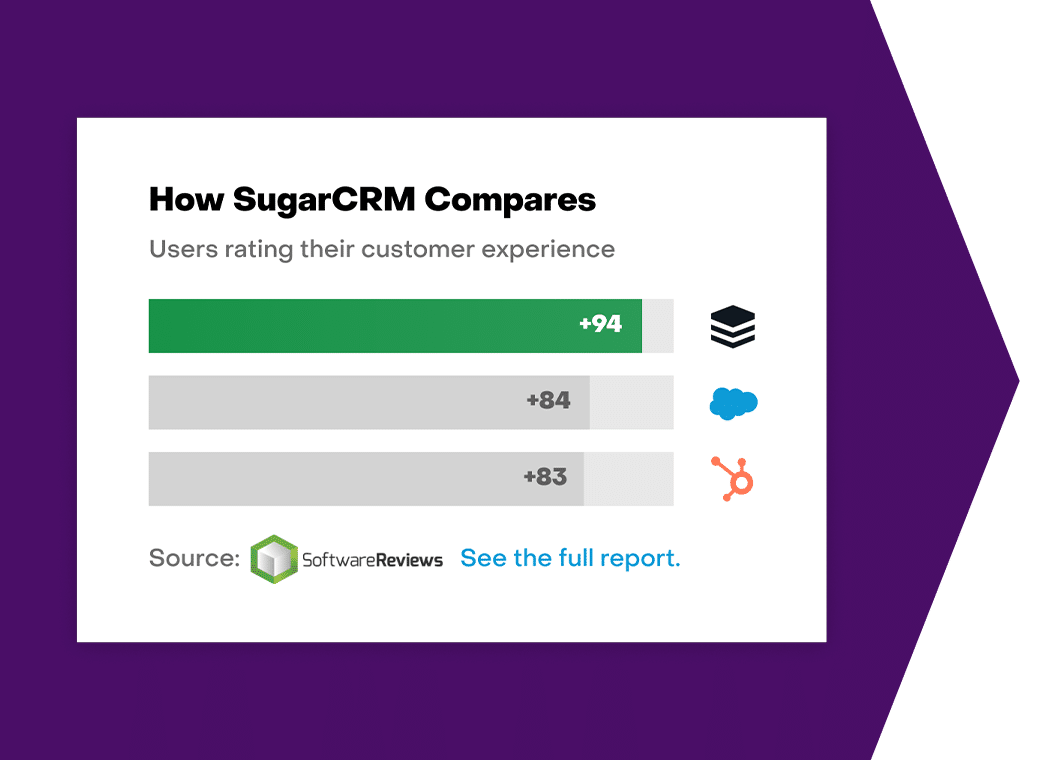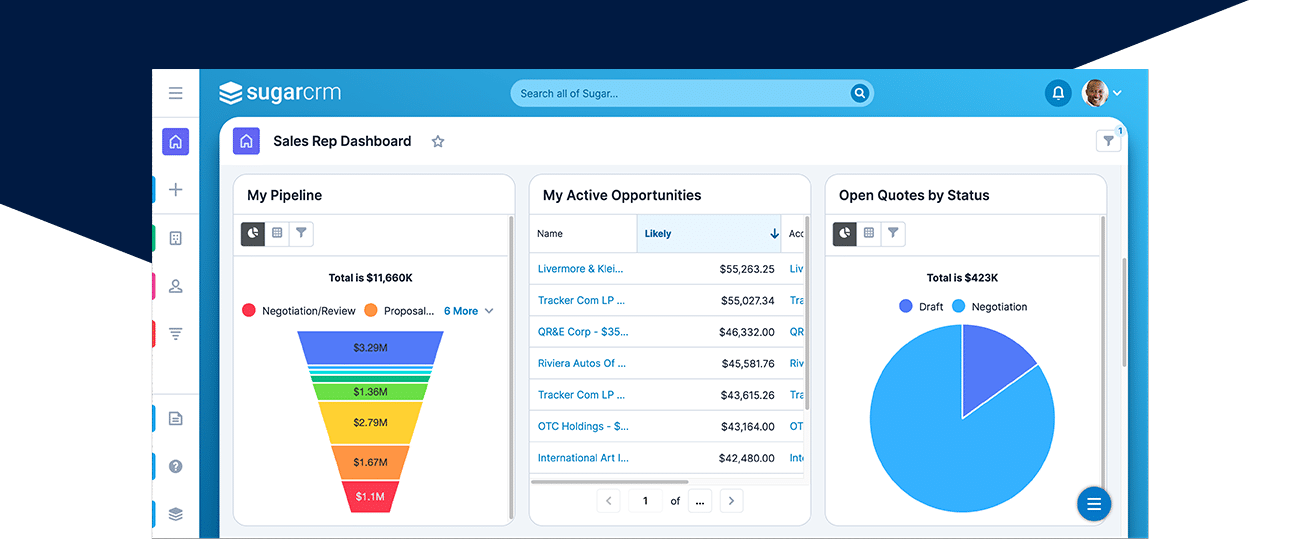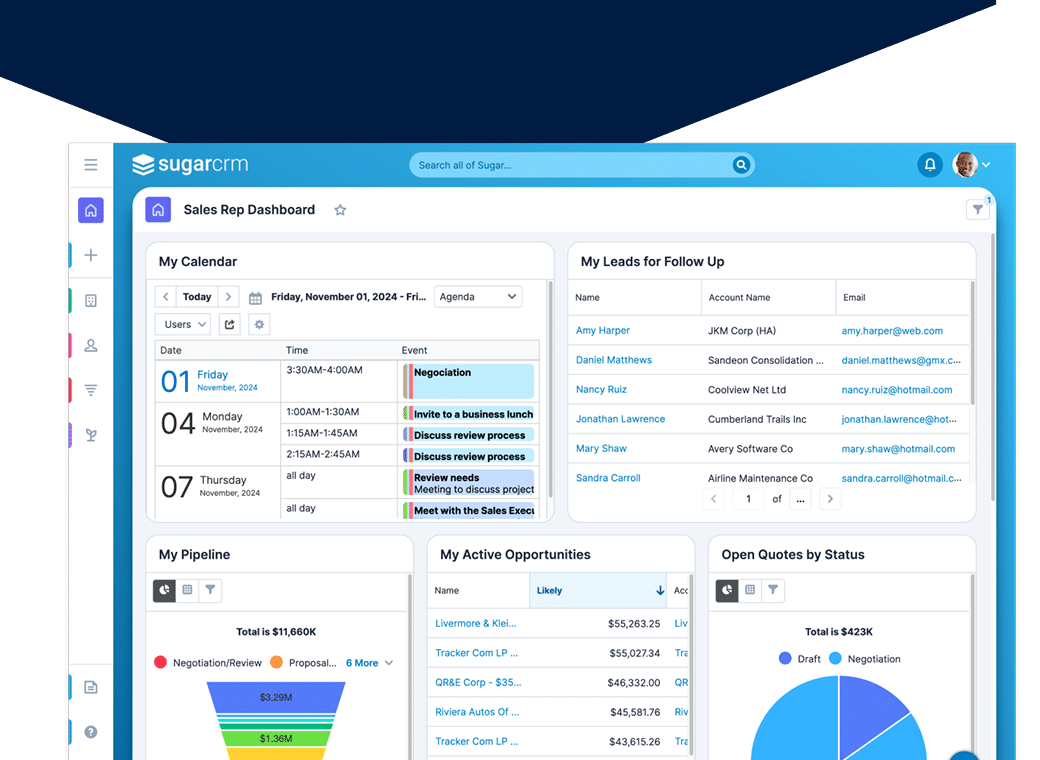Harnessing the Power of Generative AI in CRM
In today’s business landscape, it’s hard to find an organization that operates without CRM tools, even in its primitive forms. However, with recent technological advancements, Artificial Intelligence (AI) and Machine Learning (ML) capabilities have become infused in all sorts of tools, and CRMs are no exception. According to this Gartner study, almost 80% of CRM buyers today search for AI capabilities when deciding. So, we can confidently say that generative AI and CRM solutions go hand-in-hand.
What we'll Cover:
Generative CRM: What Is It?
Today’s CRM tools have been infused with predictive analytics and machine learning capabilities. This helps enterprises secure a better market position, thanks to the valuable insights offered by such solutions. Generative AI is a new concept that allows businesses to operate in multiple areas.
- Generate in-depth customer analysis
- Hyper-personalize customer interactions to achieve higher levels of CX and boost brand loyalty
- Generate detailed forecasts
- Derive new insights based on internal and third-party data
Generative CRM: Key Benefits
With so much power, companies can take advantage of generative AI’s capabilities in multiple ways.
- Enhance data security: Generative CRM solutions enhance data security by ensuring that both third-party data and internal information are safely stored. Although heavily reliant on external information, generative CRMs store private customer data in the cloud without compromising customer data privacy.
- Allow employees to focus on high-value tasks: Generative CRMs focus on workflow automation, allowing employees to reduce manual labor and focus on high-value tasks. Instead of repetitive manual tasks, your teams can focus on fostering deeper customer relationships or developing innovative ideas.
- Enhanced Automation: Generative CRMs heavily use automation features beyond traditional automation capabilities. Unlike conventional automation, generative CRM solutions identify potential bottlenecks and suggest process improvements. Such solutions can even refine strategies in real time. Businesses can use generative CRMs to ensure that they operate at maximum capacity and efficiency and remain flexible in dynamic market conditions.
Generative CRMs: Use Cases
Generative AI, paired with CRM solutions, can lift some of the burdens of daily operations across multiple organizations today. Below are several use cases of such technologies that can be applied in different organizations across various industries.
Data Collection
AI-powered data collection is proven to increase data accuracy. Generative AI integrated with your core CRM can help auto-populate fields with minimal human interaction. For example, once a team member fills in the name of a company in a form, the rest of the fields can be auto-populated with data associated with that account. This reduces the necessary effort of a rep, increasing operational efficiency.
Automated Lead Qualification and Nurturing
Lead Generation and qualification are essential processes where generative AI can be leveraged. Not only can generative AI help by automating and hyper-personalizing lead interactions, but it can also generate and streamline lead qualification processes using generative algorithms.
Generative CRMs are also equipped with Natural Language Processing capabilities, which allow you to analyze and respond to leads’ inquiries and engagement levels in a highly contextual fashion. Integrated with your marketing automation tool and CRM, generative AI can help your marketing department deliver highly personalized lead-nurturing campaigns. Because of the data-backed content, such campaigns will likely have higher conversion rates. Another benefit of leveraging generative CRM solutions is the capacity to conduct real-time lead behavior analysis for targeted engagement.
When used on unstructured data sets, such tools can assist data enrichment, giving your marketing and sales teams more insights into lead preferences and expectations enabling them to craft impactful messages and strategies.
Scalability and Adaptability for Evolving Business Needs
Generative CRMs are a great tool to increase scalability and adaptability in the face of evolving business needs. Such tools are perfect for automating and streamlining operations across all departments, helping businesses increase flexibility and market resilience. AI-based CRMs can automate a wide range of tasks, from content creation to repetitive tasks and even customer support responses.
When using generative CRM solutions, businesses also increase their adaptability levels. AI tools can analyze large sets of data (both internal and external) and predict suitable action pathways for each business’ evolving needs and market conditions.
Intelligent Sales Forecasting
CRM tools have a significant contribution to how sales departments operate. When leveraging generative CRM solutions, companies can get more pipeline context based on predictive insights. Such CRMs mainly work by analyzing historical data sets and compiling them with internal and external information. In this context, companies can enjoy dynamic and accurate sales forecasts. Besides, generative CRMs can detect macroeconomic changes, such as shifts in consumer behavior and markets, allowing companies to adapt and generate more accurate estimates in dynamic markets. Other aspects of sales forecasting where such technologies can help accurate sales forecasting for strategic planning and resource allocation and generating data-driven insights to optimize sales strategies and maximize revenue.
Up-sell and Cross-sell Opportunities
Recommendation tools are a great way to increase a customer’s average order value, enhance the overall experience, and boost brand loyalty in the long term. A generative CRM can look at a customer’s purchase history and product preferences and suggest products they might be interested in. These solutions can be used in online shopping interfaces, email campaigns, or one-on-one interactions with sales representatives.
Assisting Customer Support and Service Teams
Generative CRMs can be programmed to recognize and automatically respond to repetitive queries. For instance, such tools can be programmed to identify a customer’s last purchase, last interaction with a support representative, topics discussed, or even the amount a customer spends on a product or service during a specific timeframe.
When generative CRMs do not recognize queries because of their complexity, these can be escalated to a human representative.
Automating Payments
Generative CRMs can help you automate payment-related communications. For example, when a customer’s invoice is overdue, your CRM can be programmed to automatically send a reminder to the customer. The reminder would also include details about the transaction, such as products or services purchased. Besides, AI can create and send detailed invoices to regular customers with recurring transactions. This significantly simplifies the invoicing process, elevating the burden of your financial team.
Although generative AI is a relatively new concept, some CRMs have already included predictive analytics and connected capabilities in their workflows. For businesses in different industries, this opens the gates to elevating customer satisfaction, experience, and securing a leading position in their respective markets.
Interested in learning more about the latest trends in the CRM industry? Read our 2024 State of CRM Report!







